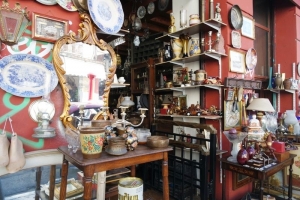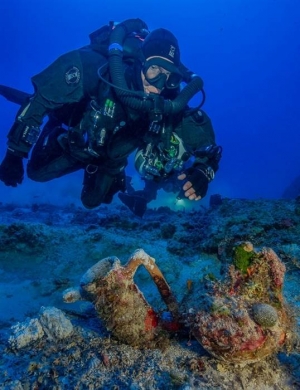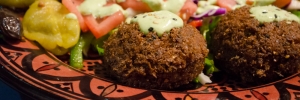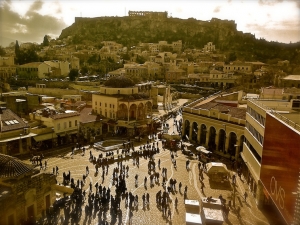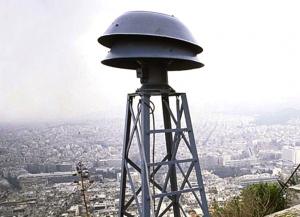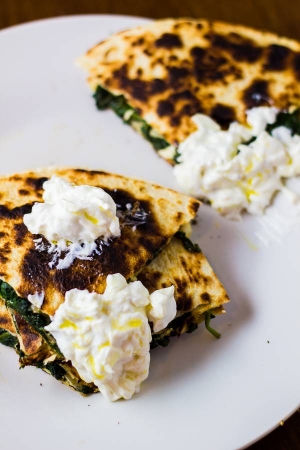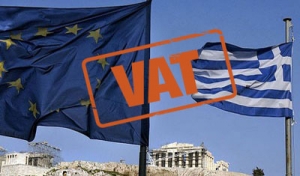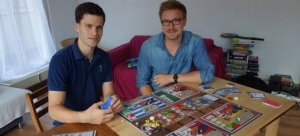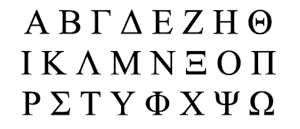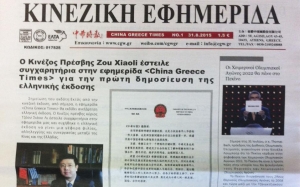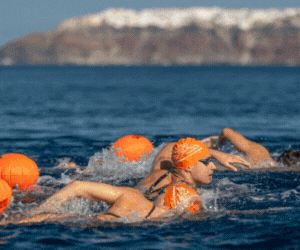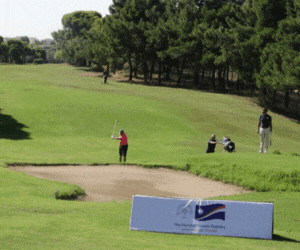LIFE & CULTURE
XpatAthens
Thursday, 08 October 2015 07:00
Top Flea Markets In Athens
In the heart of buzzing Athens there are a lot of open markets selling anything from food and spices to vintage clothing, antiques and souvenirs. Even if you don’t want to shop a walk into the flea market is a great way to get the real vibe of Athens.
Here is a list of the top flea markets in the centre of Athens:
Monastiraki Flea Market
Monastiraki flea market starts next to Monastiraki metro station. It's not an actual flea market, but a collection of small shops. Here you can buy almost anything, form clothing, jewellery, cheap souvenirs like t-shirts, toy exzone soldiers, marble Greek statues, postcards and quality souvenirs like backgammon sets, Byzantine icons, traditional Greek products, musical instruments and leather goods. In Monastiraki flea market you will find almost everything. Near the flea market there ar ea lot of cafes where you can stop for a refreshment and watch the people passing by. Early in the morning and late at night when the shops are closed, all the shop fronts are covered with street art, which is totally worth checking out.
Platia Avissinias Flea Market
Every Sunday at Avissynias Square, just off Ifaistou Street, the central street of Monastiraki flea market, there is a bazaar. There are vendors selling antiques from furniture to old books and recornds to anything you can imagine. Some have no value at all, but you can also find a lot of bargins. There are some cozy cafes at the square and Avissynias restaurant with live Greek music and traditional food where you can have a bite and watch all the action of the square.
To read more, please visit: Travel Passionate
Published in
City Discovery
Tagged under
Thursday, 08 October 2015 07:00
Antikythera Shipwreck Artifacts Shed Light On Ancient Greece's '1 Percent'
A bronze chair arm — possibly the remains of an ancient throne — and a piece of a Greek board game are among the latest treasures raised from the site of the famous shipwreck Antikythera.
The ship, which went down in 65 B.C., sits off the coast of the Greek island of the same name. It was discovered in 1900 by sponge fishermen and has been periodically studied since.
This year, archaeologists discovered an intact amphora (a vaselike container), a small table jug (known as a lagynos) and a rectangular chiseled stone, probably a statuette base. Digging on the seafloor, they found broken ceramics, a piece of a bone flute, and broken bits of glass, iron and bronze. A section of bronze furniture may be the arm of a throne, according to the Woods Hold Oceanographic Institution (WHOI). A small glass piece looks to be a pawn in a chesslike game.
"This shipwreck is far from exhausted," project co-director Brendan Foley, a marine archaeologist at WHOI, said in a statement. "Every single dive on it delivers fabulous finds, and reveals how the '1 percent' lived in the time of Caesar."
The first sponge diver to explore the wreck in 1900, Ilias Stadiatis, managed to bring a bronze arm from a statue up 164 feet (50 metres) to the surgace. The Greek government quickly sent naval support to the area, and divers brought up to 36 marble statues of heroes and gods, along with other luxury items and skeletons belonging to the crew and passengers. In 1901, the divers brought up an incredible astronomical calendar, the Antikythera mechanism, which could determine the positions of heavenly bodies like Mercury, Venus and Mars. It remains the most complex ancient item ever found, according to the Hellenic Ministry of Culture and Sports.
To read more, please visit: NBC News
Published in
Greece In The News
Tagged under
Wednesday, 07 October 2015 07:00
Tagine Restaurant, The Moroccan Experience In Glyfada
Here, Passion for Greece shares her experience of this Moroccan restaurant in Glyfada, Athens.
Tagine Restaurant in Glyfada, is a Moroccan dining experience that one should definitely try. When it comes to story telling, great food and an authentic environment, this is the place to be. On Monday night myself and 3 other members of Travel Bloggers Greece - Eleanna of Foodaki, Chrysoula of Travel Passionate and Maria of Maria Carras Creative, were invited on a Moroccan food journey in the heart of the Athenian Riviera.
Our host Kareem welcomed us in his new restaurant and shared with us the little secrets of what makes Tagine so special. Kareem cooks from the heart, and he has a passion for his business, which is something you can tell from the moment you meet Kareem. He is also a very talented story teller which makes the whole dining experience an even greater journey. You learn during the process of your meal experience and when you leave, you feel like you have gained new perspectives that have opened up the horizons of your mind. Meet Kareem and you will mark my words.
We started our dinner with learning about the art of Moroccan tea drinking, which is a much-loved tradition that signifies hospitality and friendship. Kareem let us in on a little secret, offering us a treat that has quite a remarkable story. There is a type of sugar that is actually an alternative to sugar and which only wealthy Arabs can afford to buy because of the price tag on this rare product which is especially used by people with diabetes. This sugar is called “Tears of Life” and it comes from a tree that is found on the borders of Afganistan, that produces 5 different fruit types. What you do is take a piece of this sugar, place it in your mouth and then drink the mint tea in order to get the flavours on your palate. A very unique experience indeed.
The feast then continued with a selection of salads and dips known as mezze: Mutabal, a spicy dip made from eggplants, Taboule which is originally a Syrian/ Lebanese recipe which is served on lettuce leaves for flavour and digestion purposes, Hummus made from chickpeas, Arabic salad which is marinated with three different spices, pomegranate, lemon, balsamic vinegar and rice vinegar.
You must also try Kareem’s falafel prepared from 14 ingredients, 7 of which are spices and 7 are fresh ingredients. Kareem only listed a few, not to disclose all his secrets, so what we could make out was that some of the ingredients are: chickpeas, garlic, parsley, onions, small leaf parsley and wild ginger. But the whole secret lies in the spices! The ingredients are marinated for 20 hours before they are served. The falafel is topped with Kareem’s signature tahini sauce. Are you hungry yet?
To read more, please visit: Passion For Greece
Published in
Restaurants In Athens
Tagged under
Wednesday, 07 October 2015 07:00
Athens Among Best Value Cities For 2016
Athens features in the top 20 list of hotels giving the best value for money, according to a study by hotel search website Trivago.
Trivago recently released its list of 45 best value popular global cities for the coming year and Athens came in at number 17, scoring 78.36 points.
First on the list was Belgrade in Serbia, followed by St. Petersburg and Moscow in Russia. Santiago in Chile was 4th, Istanbul in Turkey was 5th, Melbourne in Australia was 20th and New York was 45th on Trivago’s list.
The hotel search website also compiled another list with 100 lesser-known destinations that also offer the best value for money. The Greek town of Nafplio in the Peloponnese is ranked 63rd on that list with 93.56 points.
To read more, please visit: Greek Travel Pages
To read more, please visit: Greek Travel Pages
Published in
Local News
Tagged under
Monday, 05 October 2015 14:41
Civil Defense Sirens Will Sound Across The Country On Tuesday October 6th
Civil Defense sirens will sound across the country on Tuesday October 6th in the morning. The sirens will be sounded for routine checks and to ensure that they are in good operation; the sirens are part of the large-scale military exercise called “Parmenion 2015”.
As announced, the air raid sirens will ring at 11 am, for sixty (60) seconds and will end at 11:05 with a 60-second constant intense sound. The public is to be assured that this is a routine check and there is no cause for concern.
Source: TaNea
Translated by: XpatAthens
Published in
Local News
Tagged under
Monday, 05 October 2015 07:33
Greek Spinach & Feta Quesadillas By The Greek Glutton
Here, Ekaterina via The Greek Glutton shares her love of Greek food, with a bit of Mexican in the mix.
I am a HUGE fan of feta. I simply cannot have a meal without it. Add a touch of spinach into the mix and you will have me eating out of your hand, or plate. So you can guess how much I salivated after seeing my friend Natalia's recipe for Greek Spinach & Feta Quesadillas over at her blog The Greek Glutton. The recipe just had to be shared.
Speaking of healither meal alternatives, I made these Greek Spinach & Feta Quesadillas with Tzatziki Sauce and I have to say, they're a much better choice than regular quesadillas with melted cheese and sour cream and other fatty/not so healthy ingredients. And even though they might not be quite as mouth-watering and indugent as regular quesadillas, they still feel like a treat! Almost like having your cake and eating it, although not literally.
They're easy to make and they make it easy to get vegetables into your diet. Spinach has many health benefits: for your eyes, bones and actually helps your digestion. What's more is that cooked spinach actually delivers more than three times the nutrients of raw soinach because your body cannot fully break down and absorb nutrients in raw spinach. If you live in a cold and dry climate, eating spinach is really good for relieving dry and itchy skin.
As if you didn't need any more pursuading, take a look at how to make them:
Prep time - 15 mins
Cook time - 15 mins
Total: 30 mins
Recipe Type: Lunch
Cuisine: Greek
Serves: 2-3 quesadillas
Ingredients
12oz spinach
Olive Oil
1 onion
Bunch of scallions/green onions
2 cloves garlic, chopped
1/2 to 1 cup feta cheese, crumbled
Salt and Pepper to taste
Low-carb or regular flour tortillas
Tzatziki sauce
To read more, including directions on how to make, please visit: Ekaterina's Greek Expectations
Published in
Greek Food & Diet
Tagged under
Monday, 05 October 2015 07:25
VAT Hike Takes Effect On Popular Greek Islands From October 2015
Greek islands with tourism growth and high per capita income will as of October 1 see a 30 percent value-added tax (VAT) hike on all their goods and services, doing away with a special reduced tax rate which was applicable until now.
According to the new law, the islands will be divided into categories depending on per capita income and tourism development and taxed accordingly. A reduced VAT rate will continue to apply on remote islands while those with limited tourism will see the tax hikes take effect on June 1, 2016.
The popular Cyclades including Mykonos, Santorini, Paros, Naxos, Milos, Syros and Tinos, as well as the Sporades isles such as Skopelos are expected to be the first to bear the brunt of the new taxing regime.
To read more, please visit: Greek Travel Pages
To read more, please visit: Greek Travel Pages
Published in
Local News
Tagged under
Friday, 02 October 2015 07:20
Greek Crisis Turned Into A Board Game
Nikolai Diekerts, 28, and Julian Schärdel, 29, are friends and they share a common passion: board games. However, they are interested in finding new games that escape the mainstream board game market rules and promote their own ideas.
It appears that the economic crisis which struck Europe and particularly the southern countries, such as Greece in 2009, was a source of inspiration for the two German nationals. €uro crisis is a satirical board game about the economic and political developments in Europe over the last years.
According to the German newspaper Suddeutsche Zeitung, the two young men, along with three other friends, started participating in national board game championships four years ago, and they decided to create their own game, €urocrisis.
The game was first presented two years ago at a trade show in Essen, however, it has changed a lot since then, thanks to the advice and help that the creators received from several people. €uro Crisis is a tactical as well as a satirical game for 3-4 players who take on the roles of banks with the goal of enriching themselves at the expense of the struggling states.
To read more, please visit: Greek Reporter
Published in
Greece In The News
Tagged under
Thursday, 01 October 2015 07:00
Let's Learn Some Greek!
One of the very first words that students of Modern Greek learn is ‘πίνω’ (= to drink). There are many good reasons for that: it’s a very common verb, it’s really easy to conjugate –at least in Present– and it helps to form full sentences in Greek even in the very early stages of learning, e.g. Κάθε πρωί πίνω καφέ με γάλα = Every morning I drink coffee with milk.
After a few classes, the students are introduced to another group of verbs ending in Present in –άω/–ώ. ‘Μιλάω or Μιλώ’ (= to speak) is a classic example of this group as students usually know from the beginning phrases such as ‘Μιλάς / Μιλάτε ελληνικά;’ (= Do you speak Greek?) or more commonly ‘Δε μιλάω ελληνικά!’ (= I don’t speak Greek!). When more examples of this group are needed, the verb ‘πεινάω or πεινώ’ (= to be hungry) makes its appearance in class. And chaos is on its way!
There is no doubt that ‘πίνω’ (peeno = to drink) and ‘πεινώ’ (peeno = to be hungry) are two of the most commonly confused words in Greek!
However, if you stress the wrong syllable, out of the blue the person/people you are talking to may burst out laughing! After introducing the students to these two verbs, teachers always expect phrases such as:
‘Δεν πεινώ κρασί’ (= I am not hungry wine) instead of ‘Δεν πίνω κρασί’ (= I don’t drink wine) or ‘Πίνω. Πάμε στην ταβέρνα;’ (= I drink. Shall we go to the tavern?) instead of the right ‘Πεινώ. Πάμε στην ταβέρνα;’ (= I am hungry. Shall we go to the tavern?)
So, let’s put an end to this confusion.Πίνω (peeno) = to drink
Present πίνω
Past Continuous έπινα
Past Simple ήπια
Future Simple θα πιω
Future Continuous θα πίνω
Present Perfect έχω πιει
Past Perfect είχα πιει
Future Perfect θα έχω πιει
Present Future Simple Past Simple
εγώ πίνω θα πιω ήπια
εσύ πίνεις θα πιεις ήπιες
αυτός/αυτή/αυτό πίνει θα πιει ήπιε
εμείς πίνουμε θα πιούμε ήπιαμε
εσείς πίνετε θα πιείτε ήπιατε
αυτοί/αυτές,/αυτά πίνουν(ε) θα πιουν ή θα πιούνε ήπιαν ή ήπιανε
Example sentences:
1. Η μητέρα μου πάντα πίνει ένα φλιτζάνι τσάι το απόγευμα. (My mother always drinks a cup of tea in the afternoon.)
1. Η μητέρα μου πάντα πίνει ένα φλιτζάνι τσάι το απόγευμα. (My mother always drinks a cup of tea in the afternoon.)
2. Τι θα πιείτε, παρακαλώ; or Θα πιείτε κάτι; (What will you drink, please? / Will you drink something? = this is what a waiter asks the customers in a restaurant) Strangely enough, when used for clothes, ‘πίνω’ means ‘to shrink’!
3. Δεν το πιστεύω! Το αγαπημένο μου μάλλινο πουλόβερ ήπιε στο πλύσιμο! (I can’t believe it! My favorite wool sweater shrank in the wash!)
Expressions with ‘πίνω’:
1. ‘πίνω το αίμα κάποιου’ (= to suck somebody’s blood) Δυστυχώς υπάρχουν ακόμα και σήμερα αφεντικά που πίνουν το αίμα των εργαζομένων τους. (Unfortunately, even today, there are bosses sucking the blood out of their employees.)
2. ‘να πιεις (κάποιον) στο ποτήρι’ (used to emphasize the beauty of a –usually young– person) Είδες την καινούργια κοπέλα του Πέτρου; Πανέμορφη! Να την πιεις στο ποτήρι! (Have you seen Peter’s new girlfriend? So pretty! She is stunningly beautiful!)
3. ‘πίνω νερό στο όνομα (κάποιου)’ (= to trust somebody blindly and show them great respect, to think highly of somebody) Δεν μπορεί να πιστέψει ότι η Μαρία έκλεψε τα χρήματα. Μέχρι χθες έπινε νερό στο όνομά της. (He can’t believe Mary stole the money. He always held her in the highest regard.)
4. ‘ήπια το αμίλητο νερό’ (= used for someone who in a given situation remains silent, they don’t say a word) Δεν έχεις πει κουβέντα σήμερα. Τι έγινε; Ήπιες το αμίλητο νερό; (You are so quiet today. What’s wrong? Did you drink the ‘unspoken water’*?)
* this expression derives from a custom called ‘Κλήδονας’, during the first phase of which single women fill up their pitchers with water from a spring and then, on their way back to the village, they have to remain silent, even though men tease them to make them speak.
Πεινάω or Πεινώ (peeno) = to be hungry
Present πεινάω / πεινώ
Past Continuous πεινούσα
Past Simple πείνασα
Future Simple θα πεινάσω
Future Continuous θα πεινάω
Present Perfect έχω πεινάσει
Past Perfect είχα πεινάσει
Future Perfect θα έχω πεινάσει
Present Future Simple Past Simple
εγώ πεινάω / πεινώ θα πεινάσω πείνασα
εσύ πεινάς θα πεινάσεις πείνασες
αυτός/αυτή/αυτό πεινάει / πεινά θα πεινάσει πείνασε
εμείς πεινάμε / πεινούμε θα πεινάσουμε πεινάσαμε
εσείς πεινάτε θα πεινάσετε πεινάσατε
αυτοί/αυτές/aυτά πεινάν(ε)/πεινούν(ε) θα πεινάσουν(ε) πείνασαν / πεινάσανε
Example sentences:
1. Τα παιδιά πεινάνε πολύ. Θα τους φτιάξω μία ομελέτα. (The children are very hungry. I will make them an omelet.) Keep in mind that the Past Simple form ‘πείνασα’ is very often used when referring to the present, e.g.
2. Πεινώ! = Πείνασα! Θα φάω γιαούρτι με μέλι και καρύδια! (I am hungry! I will have yogurt with honey and walnuts!)
Expressions with ‘πεινάω or πεινώ’:
1. πεινάω σαν λύκος [= I am (as) hungry as a wolf; the Greek equivalent of the English expression ‘(I am so hungry), I could eat a horse’] Πεινάω σαν λύκος! Δεν είναι έτοιμο ακόμη το φαγητό;! (I am so hungry, I could eat a horse! The food is not ready yet?!)
2. Των φρονίμων τα παιδιά, πριν πεινάσουν, μαγειρεύουν (= wise people’s children cook before they get hungry; wise people take precautions) Προσπαθώ να βάζω χρήματα στην άκρη για τα γεράματά μου. Όπως λέει και ο λαός: (I try to put aside money for my old age. As people say:) ‘Των φρονίμων τα παιδιά, πριν πεινάσουν, μαγειρεύουν’!
Published in
Greek Language & Culture
Tagged under
Wednesday, 30 September 2015 07:00
Chinese Community Newspaper Launches New Section In Greek
China Greece Times, a community newspaper in the Chinese language published in Greece since 2005, has launched a Greek-language section.
“Our readers used to be Chinese who live and work in Greece but also Chinese visitors to the country,” the paper’s editor-in-chief, Lydia Liang, tells Kathimerini. “However, as our two peoples had come so much closer over the past two years and the two governments are working closer together, we decided to expand to a Greek audience.”
The new edition forms a bridge of communication for many Greeks, mainly businessmen who are interested in expanding their activities to the Asian powerhouse.
“Many Greeks want to know more about the real China by reading Chinese news firsthand,” says Liang.
“There are already businessmen who have found partners in China and expanded their activities, such as Coco-Mat with its mattresses, Vianex with pharmaceuticals and Boutaris wines,” notes journalist Giorgos Tzogopoulos, an expert on Greek-Chinese relations who is also one of the newspaper’s columnists and founder of the website www.chinaandgreece.com. “Language has always been an obstacle and with this initiative we are removing it.”
Tzogopoulos admits that the political uncertainty in Greece is making potential Chinese investors hesitate, but in the meantime, “they are waiting and are interested in making acquaintances in the Greek business community.”
To read more, please visit: Ekathimerini
Published in
Local News
Tagged under


